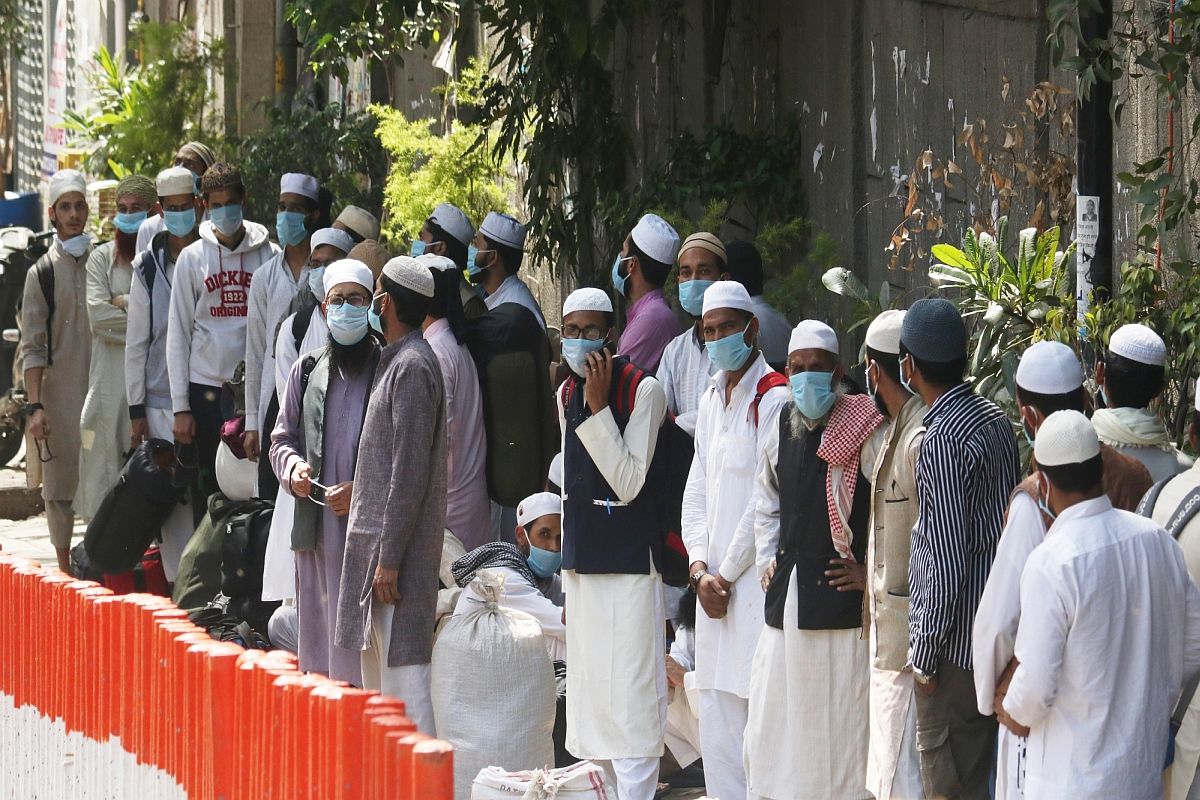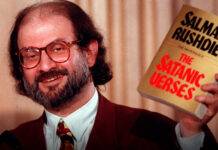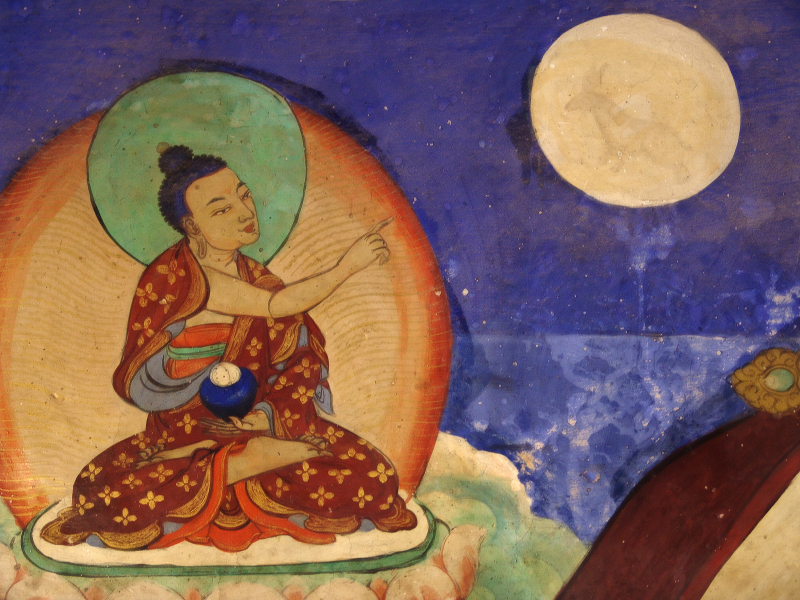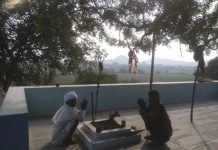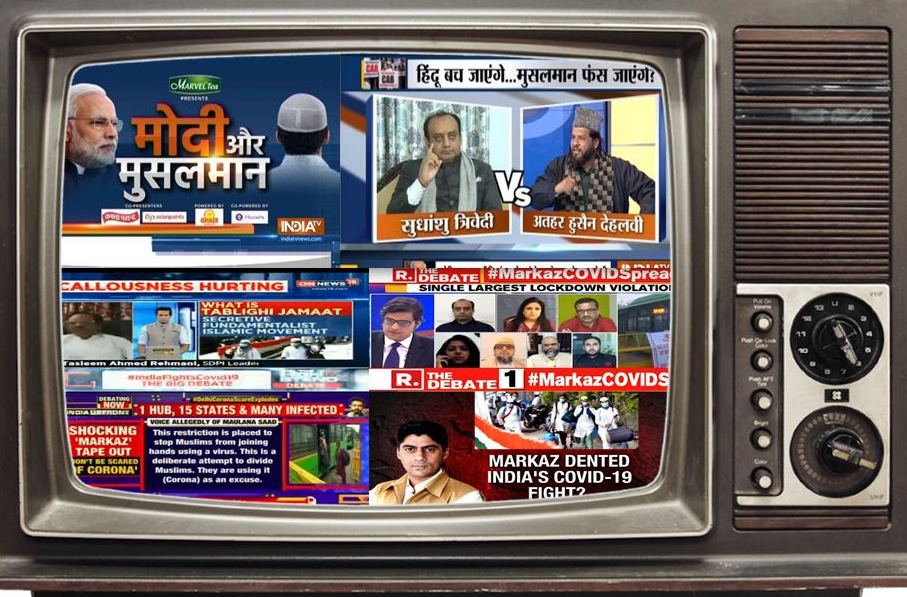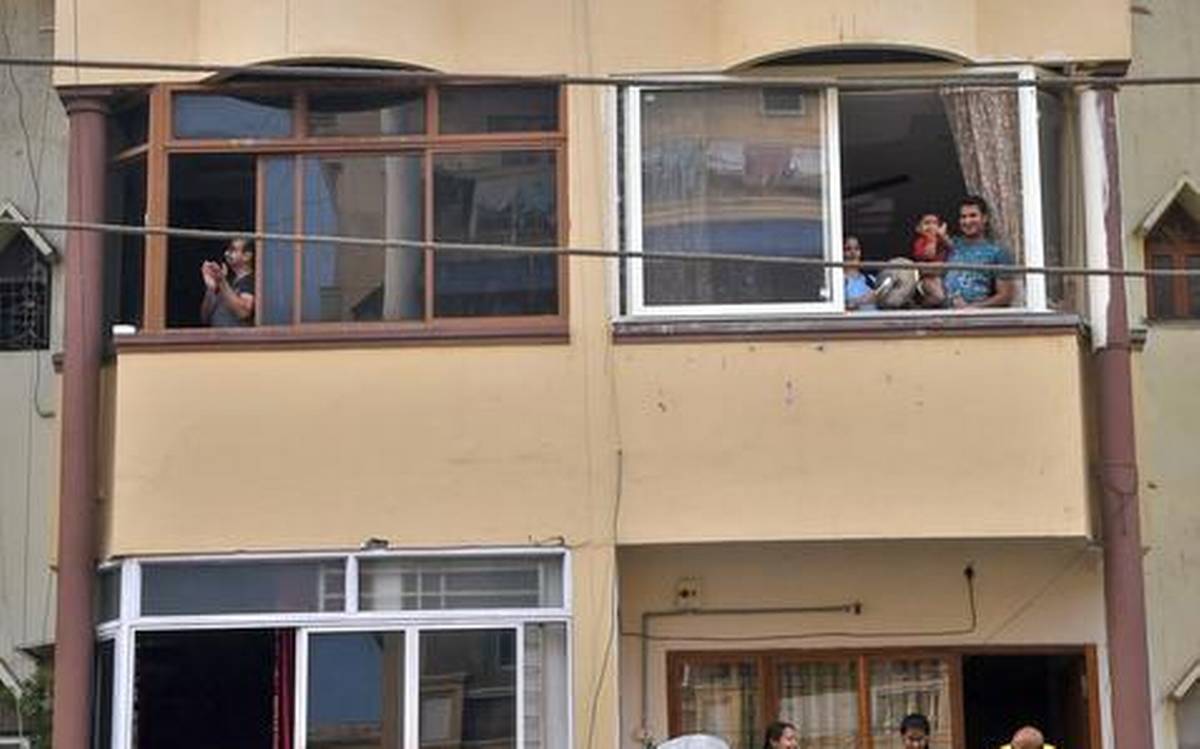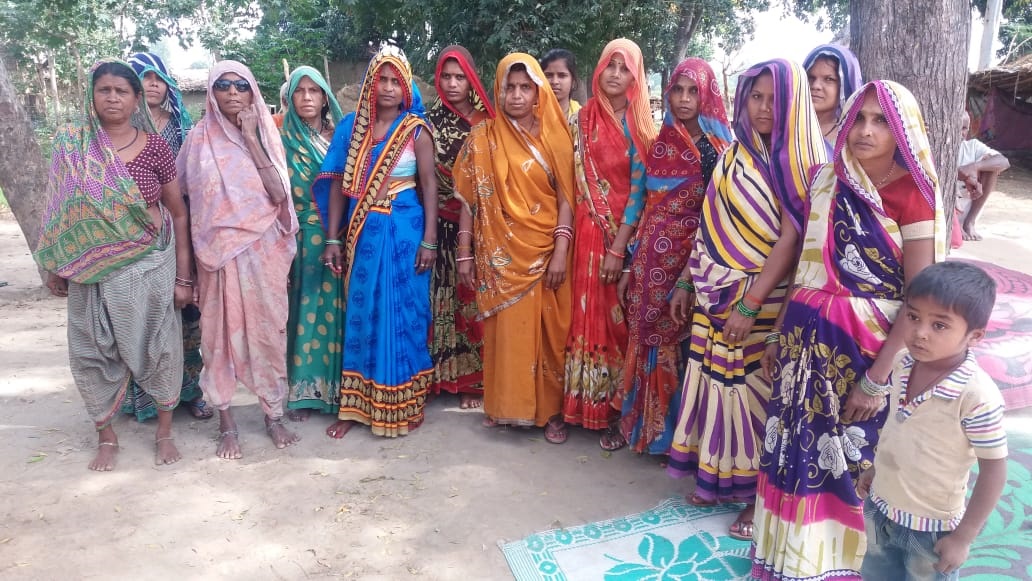This is in response to Prof. Rohit Dhankar’s recent reflection on fundamental issues with the defence of the Tablighi Jamaat’s “crime against humanity”. Prof. Dhankar is one of the finest scholars on education. Reading his reflections in newspapers and other platforms remains uncommonly assuring for anyone interested in both philosophy and sociology of education. Nevertheless, his reflection on the Tablighi Jamaat warrants a serious rejoinder so as to clarify few things and, more importantly, highlight how, on occasions, Prof. Dhankar’s otherwise scholarly commentary itself suggests a “crime against academic integrity”.
Ideally, I should start with Prof. Dhankar’s deeply unsettling phrase, “Tablighi Jamaat’s crime against humanity” but I believe there is certain merit in arriving at that rather than, unlike Prof. Dhankar’s highly problematic sequencing, starting with it.
A critical review of arguments presented against those used to defend the Tablighis
Prof. Dhankar has listed four arguments that are doing the rounds to defend the Tablighis.
The first one has to do with holding the central government accountable. He has argued that while the central government cannot be absolved of the laxity on its part, we cannot overlook the Tablighis’ moral responsibility. I don’t think any sensible person would disagree with that proposition. However, the ease with which Prof. Dhankar uses the word crime warrants our attention. I will take it up later.
The second one is about the negligence on the part of the Delhi Police. Prof. Dhankar provides a link to a 23rd March video that he claims is released by the SHO, Nizamuddin. The 4:26 long video is actually uploaded by The Hindustan Times and it is a mediatised version of the conversation that took place in the police station. As an established academic who is well aware of the ways in which media sensationalises stuff every now and then, Prof. Dhankar should not have provided link to a video that is, for approximately minute and a half, packaged in an exceedingly suggestive way. The music in the background conditions the audience’s reception and so do the bold news tickers. Ideally, he should have provided a link to this video which is simply the conversation, nothing less nothing more. On the basis of the SHO’s opening remarks in the video, Prof. Dhankar argues that the police have been telling the Tablighis to vacate the premises but, much to my surprise, fails to inquire even fleetingly, the date(s) when the Tablighis were asked in writing by the SHO to vacate the premises. His indifference to that crucial bit, to say the least, is unfortunate. Moreover, Prof. Dhankar does not bother to mention – something that is very much there in the video – that out of 2500 people the Tablighis managed to get 1500 out by that day. A passing reference to that effort on the part of Tablighis would have hinted at Prof. Dhankar’s objectivity vis-à-vis commenting on this overall affair. Lastly, he says that the police should not have been scared of touching this Jamaat, a hoodwinking organisation. The police scared of the Tablighis is definitely an unsettlingly naïve remark and, what is much worse, one that can cause violence. I hope by making a statement of this kind, Prof. Dhankar realises what kind of a perception he is generating among his readers; there are these bearded orthodox Muslims, part of a hoodwinking organisation, who even the police are scared to touch. At a time when brazen violence and unapologetic lawlessnes are openly incentivised, Prof. Dhankar should briefly think about the possible unintended consequences of an irresponsible remark of the sort he has made.
The third one is about Hindu temples being open and Hindu gatherings happening around the same time so why specifically go after the Tablighis. Questioning the defence, Prof. Dhankar says that these gatherings were before the lockdown but quite conveniently forgets to mention what does he mean by the lockdown. If he is referring to The Lockdown then it does not make any sense whatsoever because the Tablighis were done with their gathering on 15th March. Unfortunately, Prof. Dhankar indulges in a very hasty commentary. Ideally, he should have provided a list of events that defendants of Tablighi Jamaat are referring to and then get on with explaining how each of those events did not really warrant the same seriousness or, to be more apt, anger. He says that in its 13th March order, the Delhi government banned congregations of more than 200 people. Unfortunately, Prof. Dhankar is misquoting the 13th March order. If he reads the order carefully he would realise that the word congregation is not used even once. It says sports gatherings, conferences, and seminars. If Prof. Dhankar had spared a few minutes in figuring out what does the Arabic/Urdu word Ijtema mean, he would not have presented the kind of fleeting commentary he did. Ijtema is not just any congregation but a religious one. The 13th March order did not have any reference to religious events. The addition was made in the Delhi government order that was issued on 16th March. As for his “if A made mistake X, then you can not blame B for making the same mistake” argument goes, I will attend to that in detail a little later.
The fourth argument i.e. “the people entered Markaz before the government declared lockdown and then they could not go from there” in his opinion collapsed in the light of the orders issued by the Delhi government on 13th, 16th, & 19th March 2020. It would have been better had Prof. Dhankar also briefly informed his readers about the content of the mentioned orders so as to facilitate a more meaningful engagement. Though I took it up passingly in the previous paragraph, let me briefly mention what each of these orders spells out so that the readers can place themselves in a more informed way.
- The order issued on 13th March directs that “all sports gathering (including IPL)/conferences/seminars beyond 200 people are prohibited in NCT of Delhi for the purpose of prevention and control of the outbreak of epidemic disease namely COVID-19.
- The order issued on 16th March suspends operation of all Gymnasium and SPA, Discotheques and Theaters, any event (social/cultural/political/religious/academic/sports), seminar and conference restricted to a maximum of 50 persons till 31st March, 2020. Moreover, shopping malls are directed to be disinfected daily and make provisions of the availability of ample number of hand sanitisers.
- The order issued on 19th March directs restaurants to discontinue seating arrangements, declares that all sports complexes shall be closed and directs that any event (social/cultural/political/religious/academic/sports), seminar and conference is restricted to a maximum of 50 persons till 31st March, 2020.
So the order issued on 13th March did not mention religious gathering. It was spelled out in the ones issued on 16th and 19th March. The Tablighi Jamaat gathering was from 13th to 15th March and therefore cannot be questioned legally. Given the dates of the event and the content of the Delhi government orders Prof. Dhankar referred to, it is difficult to understand the aversion that runs throughout his article. Had Prof. Dhankar taken out the time to visit the Delhi government dedicated webpage, his criticism would have been a little less scathing and reactionary. For all we know, he might have attended to other queries pertaining to marriage ceremonies, malls, public transport, approximately 35,000 foreign-returned persons staying in Delhi since March 1st, 2020 and so forth.
Concern about Prof. Dhankar’s “real” concerns
Moving on, we are informed about the distinction between ‘violating an order because of some constraints or inadvertently’ and violating them deliberately. To me this distinction does not need to be flagged. What needs to be put on record of is that Prof. Dhankar holds Tablighis as belonging to the latter and others to the former. That scheme needs to be attended to. We fail to come across a single credible argument to substantiate that the Tablighis violated the orders deliberately. Regarding the Ramanavami and Yagna reference, I will take it up alongside “if A made mistake X, then you can not blame B for making the same mistake”.
Prof. Dhankar then moves on to two very grave concerns starting with audios of Maulana Saad, the head of Tablighi Jamaat. Once again, had Prof. Dhankar done a little bit of research instead of simply going ahead with whatever is served by media houses, he would have got to know that the Tablighi Jamaat has two factions. One is headed by a council of few members (Shura) whereas the other by Maulana Saad. As a matter of fact, there is violence in using the term Tablighi Jamaat so casually in this whole narrative without bothering even once to acknowledge that the Nizamuddin wing happens to be one of the two factions and the other one canceled all its gatherings around March beginning. To come to Maulana Saad, Prof. Dhankar rightly points out issues with his sermons and puts on record his concern more categorically given Maulana Saad’s huge following. There is little to deny that much of what Maulana Saad has to say in his sermons needs to be questioned. However, Prof. Dhankar must also acknowledge that Maulana Saad is just another religious preacher who is to be situated in a certain religious context.
The Tablighi Jamaat members believe that nothing in this world happens without Lord Almighty’s approval and therefore for every trouble/calamity the believers must turn to Him. One can have issues with this position but what cannot be denied is that in no way does it violate the constitutional provision vis-à-vis freedom of religion. As regards the charge that “these religious views endanger lives of thousands of people, and are capable of creating a very large-scale health hazard”, once again we need to engage with this in a more informed manner. Maulana Saad’s instructions are to be looked at from the vantage point of religious obligation, as perceived by Tablighi Jamaat. By any stretch of imagination, it is not really a theological invocation geared towards, as argued by Prof. Dhankar, deliberately putting everyone else’s life in danger. In my knowledge, across Jamia Nagar, New Delhi, ever since the lockdown, not even a single mosque (there must be more than a hundred or so) is open for prayers. Almost all of these mosques are dominated by Tablighis but there has not been a single incident of Tablighis roaming around and asking people to go to mosques. From as early as 13th March, some of us were personally involved in getting announcements made from mosques that old people, children, people with travel history and their family members, and those down with fever, cough, and cold should not attend the Friday prayer congregation. The move was not opposed by any Tablighi.
Prof. Dhankar refers to Maulana Saad’s sermon given on the morning of 26th March and infers that by asking people to pray in large congregations and meeting others to come to the mosque, Maulana Saad is endangering the lives of thousands of people. It has also been pointed out that it is a deliberate theologically-minded violation of the government orders. While Prof. Dhankar invests in a few distinctions throughout the write-up, he has missed out on the fine distinction between endangering oneself by following a religious obligation and using theology to deliberately put everyone else’s life in danger. Mohd. Danish Iqbal, a faculty at the Department of English, Aligarh Muslim University, made a strikingly perceptive remark on Prof. Dhankar’s assessment. In an email, he wrote,
“It is important to point out the distinction between acting upon an avowed religious obligation, to the point of endangering oneself, and that to invoke theology while deliberately endangering others’ life. The former is a matter of faith (and in some cases, disposition), which still remains open to criticism, however, not of the kind advanced here. The latter –a devious act of religious bigotry– deserves criticism of the kind the author makes, but of the order the markaz incident certainly is not”.
Prof. Dhankar refuses to entertain the validity of the “stuck inside” explanation and instead draws his readers’ attention to their ‘acts of theological disregard’. He flags his concerns about Tablighis deliberately disobeying government orders. To rationalise his arguments further, beating down the same track, he again insists that if a mahant or temple priest if found indulging in similar acts they should be equally condemned and punished. It is again with unsettling convenience that Prof. Dhankar points out that the Jamaat cannot be defended ‘if there are no such acts’ found. It does not take a genius to know that there are hundreds of videos of preachers across the board that attest to continuous conflict between the state and the religion yet Prof. Dhankar entertains “if there are no such acts”. His position is all the more confusing for in the same paragraph he did acknowledge that there have been theologically-minded deliberate attempts of instigating people to disobey government orders and then a line or two later he pitches this exceedingly problematic “if”.
Prof. Dhankar expresses his ‘real concern’ in a deeply problematic way. Reading his final bits it seems that one of the religious obligations the Tablighis have (the most pressing one perhaps) is to do with disobeying government order. He goes even further and argues that their doings undermine the constitution and orders of the constitutionally elected government. An ill-founded concern of this kind –surely a result of little awareness of the history and essentials of the movement– needs to be questioned at all costs. Prof. Dhankar needs to realise the consequences of a sweeping remark of the kind he has made.
Lastly, Prof. Dhankar is being disturbingly patronising in suggesting that one can only understand the Tablighi Jamaat by listening to Maulana Saad’s lectures. As already pointed out, this suggestion reeks of his ignorance of the actual state of affairs of the movement. Maulana Saad does not represent the whole of Tablighi Jamaat and even for those who are associated with his faction, there is more to their engagement with the movement than what lectures of Maulana Saad suggest. It is on the basis of listening to Maulana Saad’s lectures and nothing else that Prof. Dhankar remains convinced that there has been a deliberate disregard on the part of Tablighis. For any transnational movement that has following across sections of society, an inference of this kind is an irresponsible one and merits staunch criticism.
What Prof. Dhankar needs to be mindful of
Before I end, let me draw Prof. Dhankar’s attention to a few points that, strangely enough, did not occur to him as he penned down his detailed concern.
Firstly, Prof. Dhankar puts on record his issues with people defending Tablighi Jamaat. If he were to do a cursory scanning of articles written on this unfortunate event, he would, hopefully, be surprised to know that for every article that “defends” the Tablighis, there are at least 10 that vilify them. However, he frames his concern in a way that the reader gets this feeling that almost every second person in India is “defending” the Jamaat. Be that as it may, there are serious issues with the usage of the word “defend” in the title of Prof. Dhankar’s article. It suggests some kind of blind advocacy on the part of those who are trying to let good sense prevail over absolute hate and vilification. In this hate-filled milieu, “Should one defend Tablighi Jamaat” demands a specific answer. The statement betrays its framing. What Prof. Dhankar fails to understand is that there is a fine distinction between defending and genuinely making a case against vilification, hate-driven targetting, abuse, violence etc. I hope Prof. Dhankar knows that none of these write-ups are written by Tablighi but by those who have had no association with the movement. In that sense, it is not a defence but a call to not indulge in hasty conclusions that can, in a way, turn out much more damaging than COVID-19.
Secondly, Prof. Dhankar makes a case for equal condemnation and punishment so as to put on record that his intervention is quintessentially neutral. To borrow from him, the idea that if “A made mistake X, then you can not blame B for making the same mistake” is used rather frequently and is fallacious. He says that instead of absolving B, we should actually make it a point to punish A too. Prof. Dhankar’s argument is acceptable but, while making a case for equal treatment, he has missed out on something exceedingly crucial here. He need not be informed that India is going through majoritarianism of the most brazen variety. Muslims of India, the bad minority group as it were, have been subjected to violence, hate, and bigotry like no other group. The community is almost disenfranchised. They are told on their faces that their votes don’t matter and almost all the political parties of consequence have, in their own clandestine ways, bypassed questions pertaining to minority rights, social justice, representation and so forth. If Prof. Dhankar agrees with this brief glimpse of existing socio-political reality of India then he might also entertain that neutrality in the kind of matter under consideration will not do. To say that we will condemn both Hindus and Muslims or whoever else is to be unspeakably naïve vis-à-vis identity as a relation, a received idea. We must remain mindful that news about Muslims creates a completely different reaction as opposed to news related to any other religious community. More importantly, think about the get up of Tablighis and the larger landscape of hate and bigotry against Muslims and in no time one can understand what an irresponsible and ill-informed criticism of the Tablighis could potentially lead to. So, responsible criticism (God knows what that is at a time when social life is disgustingly polarised) is what I would vouch for.
Thirdly, while Prof. Dhankar diligently advocates the equal treatment proposition, he fails to reflect on something extremely fundamental in understanding the larger politics of framing and explanation. We need to attend to the fact that while referring to the Tablighi Jamaat, the reference to the other (Tirupati, a Gurudwara, or a reference to some other religious gathering) is always a past reference. We fail to notice the suggestive side of “too” in “that too should be condemned”. The overall exchange landscape evidently testifies our collective silence on a range of events until the Tabligh episode. And the reason why few people indulge in this exchange (what about A, B, and C?) is to do with the fact that, unlike earlier incidents of COVID-19 transmission, the Tablighi Jamaat episode is not merely reported. Its news is about creating anger, hate, and disgust. To speak against that kind of reporting is not simply to defend Tablighi Jamaat but something much more consequential, our potential and promise as sentient beings.
Fourthly, Prof. Dhankar might have got to read about the overwhelming plethora of fake news related to members of Tablighi Jamaat coming from all corners of the country. They are roaming naked, listening to obscene songs, demanding 25 rotis and Bade ki Biryani (Buffalo Biryani), they have terror links, are spitting on doctors and healthcare providers etc. Interestingly, various state police twitter handles offered clarification and called many of these news reports as fake. Moreover, hashtags such as Corona Jihad, Jamati Virus, Muslim matlab Aatankwaadi etc. kept trending for a significant while. Few went ahead and offered the simplest remedy to the problem (shall we say crime); every Tablighi should be shot dead. In various localities, Muslims were asked to leave, poor fruits and vegetables vendors were forcefully pushed out of localities they had been catering to for many years. On 3rd April, a mosque in Northwest Delhi was attacked and burnt by a group of about 200 people. Had it not been a lockdown one does not how many would have been lynched without a fleeting sense of unease. Keeping all this in mind, Prof. Dhankar must ask himself a simple question. Would any other community, having done what the Tablighis did, be subjected to the same brutality and hate? His answer would urge him to forsake the equal treatment thesis. It should also inform him a little more about why few people did not want to get Tablighis vilified.
Fifthly, Prof. Dhankar, with astute scholarly conviction, with regard to government orders, attributes informed and willful disregard to Tablighis. Tablighis can be stupid but their stupidity does not make them unaware of their status as second-class citizens. They know their vulnerability, the fact that they are sitting ducks. This is why, notwithstanding their huge numbers, not even once have they been found violating any rule or law. They take pride in being non-political (for which they have been criticised from within the Muslim community) and, across the world, not even for a fleeting moment discuss the most pressing political concerns of the time. Deliberate disregard requires serious backing. A vulnerable group cannot afford to take chances. On the contrary, large gathering during the Ram Navami celebrations on 2nd April in Bengal is to me an act of deliberate disregard. And they did it because they know it will not be taken up. You will not write about it just when it happened. At some point later, when you will reflect on something else and you will be told about this event, and you might seek recourse to the ever-enchanting “That too should be condemned”. Honestly speaking, I am least interested in who all violated the order and on what scale because to me, as a student of politics and culture, that remains frustratingly immaterial. It does not do anything.
Lastly, in the light of some of these concerns I have flagged, you might want to revisit your “crime against humanity” phrase. To me, it is exceptionally violent on our part to comment on an already vulnerable community’s even more vulnerable section in such a way. Due to a person’s irresponsible behaviour, over 26000 are home quarantined in MP’s Morena. Given the person’s identity, this news has not led to any anger or reference to a public health hazard. I will never call it a crime against humanity. You, however, can think about the same news with name changed. You can very well say this too should be condemned with equal ferocity but both of us know it is, my apologies, a meaningless proposition. Even when we condemn both we don’t end up creating the same response in the society. So stupidity might not suggest criminality.
I do maintain that the Tablighis ought to have behaved more responsibly. However, I vehemently stand against any kind of vilification of the group. To call their bit a crime against humanity is to, of course inadvertently, fan the flames of hatred and bigotry. And to question attempts at saving them from being vilified is to demonstrate uncommon naivety vis-a-vis unequal claims of different identities and deep faultlines that plague our society.
Irfanullah Farooqi teaches Sociology at South Asian University, New Delhi.
ALSO READ :
- Should one defend Tablighi Jamaat?
- Tablighi Jamaat and the Perils of Precipitous Criticality
- Defending the Indefensible: A Response to Dr. Farooqi’s Rejoinder

